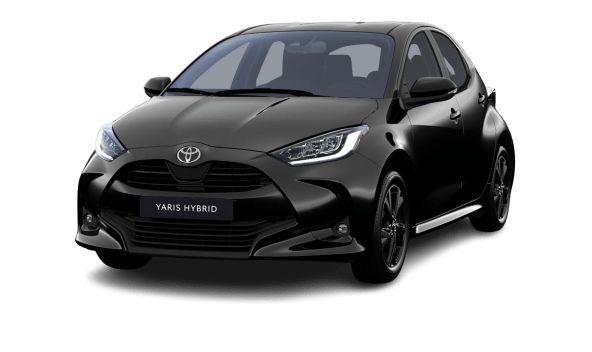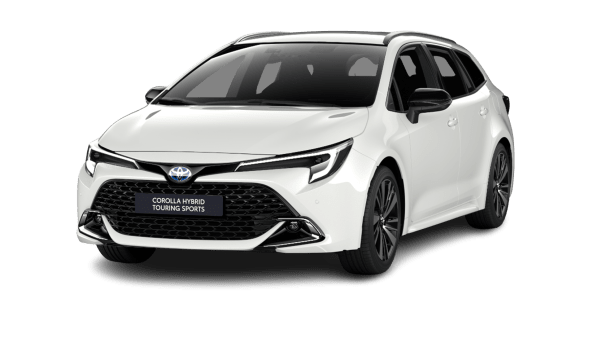10 Reasons Not to Lease a Car
Leasing has many benefits over buying a car but these 10 reasons why leasing a car is a bad idea for some drivers will help you make the right decision for you.
Read time
7 minutes
Date
07.07.2023
Share

Have you decided that buying a car is not the best option for you and you’re going to check out car leasing instead? Leasing does have some important advantages over buying but it’s not the only alternative (car subscriptions are becoming increasingly popular, more about that later) and, besides, there are some good reasons not to lease a car.
Here we look at how leasing works and why it may sometimes be a good idea — but also cover the 10 following reasons not to lease a car:
- You don’t own the car with a lease
- You’re still tied into a two- or three-year deal
- High contract break fees for leases
- Strict mileage limits for leased cars
- You pay more interest on a lease than on a loan
- You can’t sell a leased car to finance a new one
- You can’t customize a leased car
- You’re still responsible for maintenance and repair costs
- You still need to pay for registration and roadside assistance
- If your car is totaled, your lease terms remain the same
You’ll have a clearer idea of whether you should lease a car, what your alternatives are if you decide it’s not for you, and whether a FINN car subscription with flexible commitment terms fits your needs better.
Find your car
How does car leasing work?
Online car leasing is a simple way to drive a car as if you own it but without needing a car loan to purchase the vehicle outright.
The leasing company owns the car and you “rent” it from them for a pre-agreed length of time — usually two or three years. You can also negotiate mileage, which is usually limited to 10,000 or 12,000 per year. Excess mileage incurs extra costs.
At the end of the lease, you may return the car to the leasing company or, if you have included an option to buy in your lease terms, purchase it.
Is there ever a good reason to lease a car?
The main attraction of leasing is that you don’t have to worry about vehicle depreciation or the high monthly payments associated with a car loan. In most cases, by leasing a car, you can drive it away paying less each month than you would if you had to pay back a purchase loan for the same vehicle. And you can give the car back at the end of the agreement with no attachments.
With turnkey services available online, leasing a car has never been easier. You’ll need to submit some lease documentation but the application and approval process is simple and can be completed in minutes in some cases.
So, if you like the flexibility of driving a new car every few years and want generally lower monthly payments than buying a car outright, a car lease is worth considering. However, for some drivers, leasing a car is a bad idea.
10 reasons not to lease a car
Before you decide on a lease, you should be aware of some possible downsides. These may depend on your circumstances and how you view car ownership but here’s a compilation of 10 reasons not to lease a car:
1. You don’t own the car with a lease
For some drivers, leasing a car is like renting a house: why rent and “waste money” when you can buy and end up with something you own?
If you want your name on the title of your car, leasing may not be for you. With most leases, you hand the car back at the end. (Caveat: some deals allow you to purchase the car at the end of the lease agreement).
2. You’re still tied into a two- or three-year deal
Most lease deals are two or three years. This means that you’re tied into making substantial payments for this period and also into driving the same car. More flexible options are available, including shorter-term car subscriptions.
3. High contract break fees for leases
Expect to pay through the nose if you want to terminate your lease deal early. You may have an obligation to pay up the remainder of your lease if you want to end it. And negotiating the huge break fees down with leasing companies that see their revenue dwindling can be difficult.
4. Strict mileage limits for leased cars
Most lease deals include a mileage limit of 10,000 to 12,000 miles per year. That’s around 800 miles to 1,000 miles per month or just under 200–230 miles per week.
If you regularly do more miles than this, you’ll need to negotiate a high mileage lease. Otherwise, a lease may be a bad idea because you’ll be paying excess mileage fees every month.
5. You pay more interest on a lease than on a loan
It surprises some drivers that you pay more interest on a lease than on a purchase loan. Because you have no collateral with a lease (you don’t actually own the vehicle as an asset), lenders usually reduce their risk by increasing the interest rates.
Interest accounts for a high proportion of a monthly lease payment. When drivers know this, leasing may seem like a bad idea for many.
6. You can’t sell a leased car to finance a new one
Often, car owners progress through several purchases, upgrading each time until they finally own the car they want.
With leasing, you may be able to drive the car you want earlier but you’ll never be able to use the vehicle to finance the next one. You simply return it at the end of the lease and may become trapped in an endless “leasing cycle”.
7. You can’t customize a leased car
If you like to customize your car, it’s a good reason not to lease a car. Under the terms of your lease agreement, there are usually strict conditions on what you can and can’t do with your car. Most vehicles must be returned in their original condition minus the expected wear and tear.
The leasing company determines what condition is acceptable. Drivers may be charged additional expenses if standards are not met.
8. You’re still responsible for maintenance and repair costs
Even though you don’t own the car you lease, you’re still likely responsible for maintenance and repairs. As most car owners know, these costs can mount up very quickly. Some drivers object to the fact that they must pay for the upkeep of a car that they never own. And the leasing company will expect you to prove that you’ve maintained the car during the lease term.
9. You still need to pay for registration and roadside assistance
With leases, you’ll still need to arrange registration and roadside assistance yourself — but without actually owning the car you drive. Registration fees might be higher for a leased car than a car you own, depending on the state you live in.
10. If your car is totaled, your lease terms remain the same
You’ll need the right insurance coverage (gap coverage) with a lease because if you’re in a serious accident and your car is totaled, your car lease payments don’t change.
Without the right insurance, you may need to pay off the remainder of your lease with nothing to show for it. Also, bear in mind that insurance is often higher for a leased car than one you own.
When is leasing worth it?
Despite the many reasons not to lease a car, you may not have discounted the option. After all, leasing is still an option enjoyed by almost one in five U.S. drivers.
You’re more likely to be attracted to a car lease if you view a vehicle more as an expense than an asset. If so, you can ignore the fact that you’re paying for something you never own. Some people rent all their lives rather than buy a home, after all.
Leasing a car may also be a good idea for some small business owners, who can write off the lease as a tax deduction. However, for many people who consider leasing and understand the downsides, buying or subscribing may be better options.
Leasing vs buying a car
Buying is the most obvious alternative to leasing. Consider the various merits of these two options before looking at an alternative option you may not yet have considered.
Leasing:
- Most leasers never own their vehicle
- Usually requires a security deposit/down payment, as well as registration fees, etc.
- Higher interest rates but lower monthly payments than buying
- Difficult to break the contract
- Not possible to customize the car
- Maintenance, repairs, and insurance are generally the customer’s responsibility
- Depreciation of the vehicle doesn’t affect the driver
- Must calculate expected mileage and try to stick to limits
- May need to pay extra fees for excessive wear and tear
Buying:
- Buyers purchase and own an asset
- Often a high down payment, as well as registration and other fees
- High monthly payments but lower overall interest rates
- Can sell or trade-in at anytime
- Possible to fully customize the car
- Maintenance, repairs, and insurance are the buyer’s responsibility
- Need to consider vehicle depreciation/wear and tear
- Mileage is not a major consideration
Remember, buying a car means you’ll not only have the burden of a high down payment and monthly payments but you’ll also have the additional cost of ownership expenses that include insurance, maintenance and repairs, registration, and roadside assistance. You’ll also need to deal with the depreciation and condition of the vehicle affecting resale value.

What to do instead of getting a lease
A car subscription with FINN saves you many of the costs, risks and hassles of buying and owning a car — and also provides more flexibility than a lease.
Subscriptions allow you to drive the car you want for a single monthly fee that includes registration, insurance, maintenance, and 24/7 roadside assistance. You can arrange everything online and you can switch cars every six or 12 months.
What should you do if you already have a lease?
You should never lease a car without answering these key car leasing questions, However, if you already have a car lease, the high break fees mean that it could be expensive to switch to another option. It’s best to review your options again when you approach the end of your current lease period.

Final thoughts
Leasing is a good option for drivers who are not concerned about car ownership and don’t mind keeping the same car for two or three years.
If you’re looking for the best lease deals 0% down, FINN’s car subscription service is a fast, low-risk and convenient way to drive the car you want with no down payment or long-term commitment necessary.








